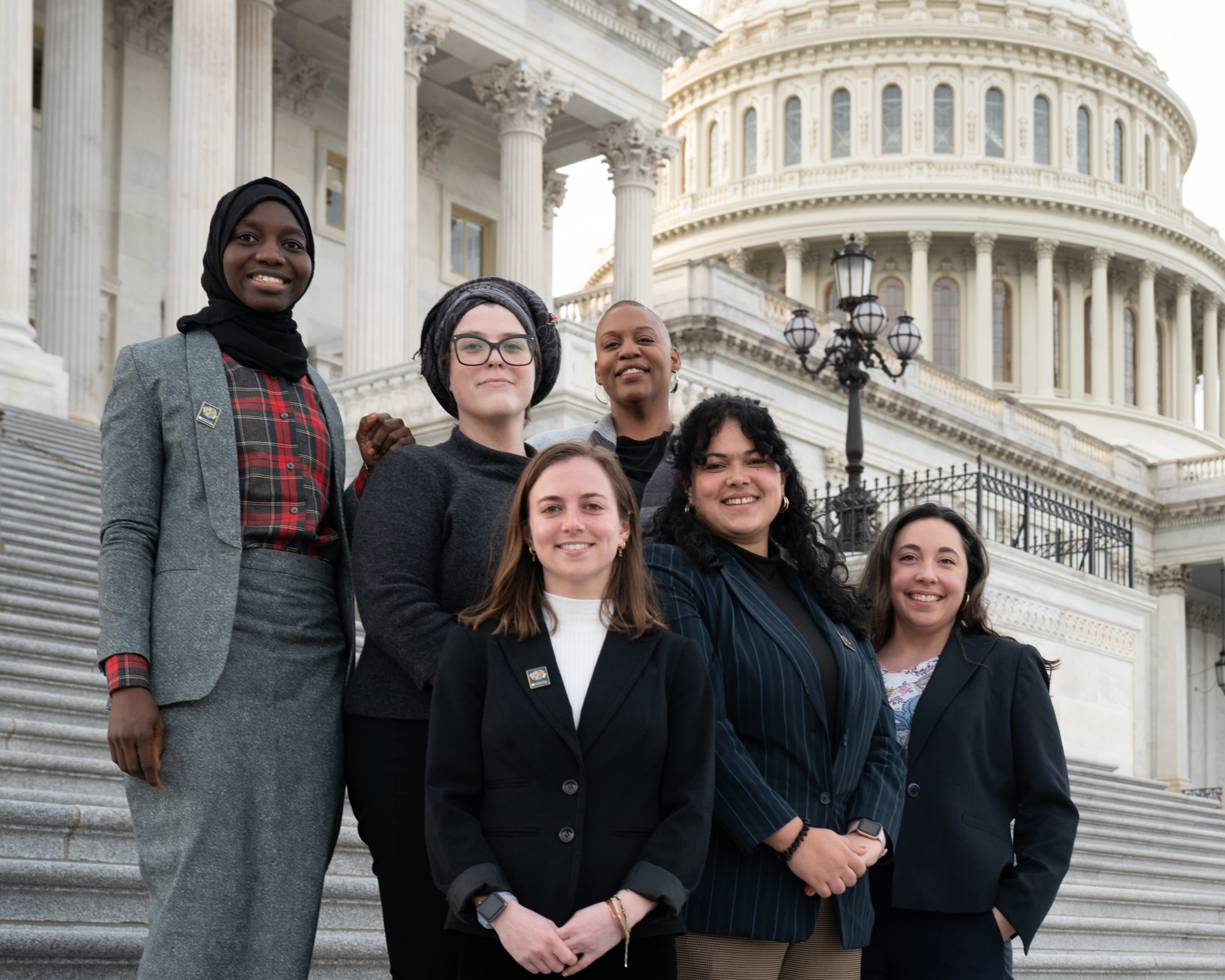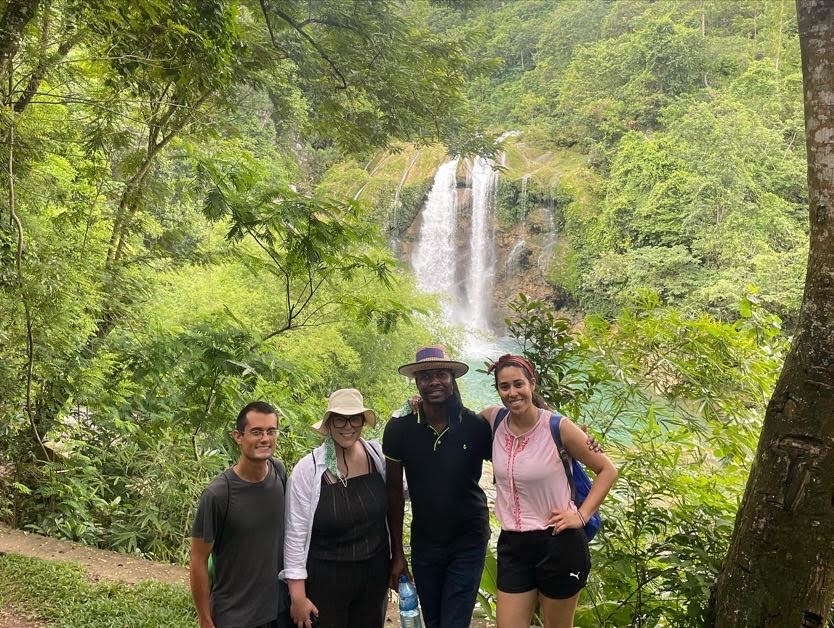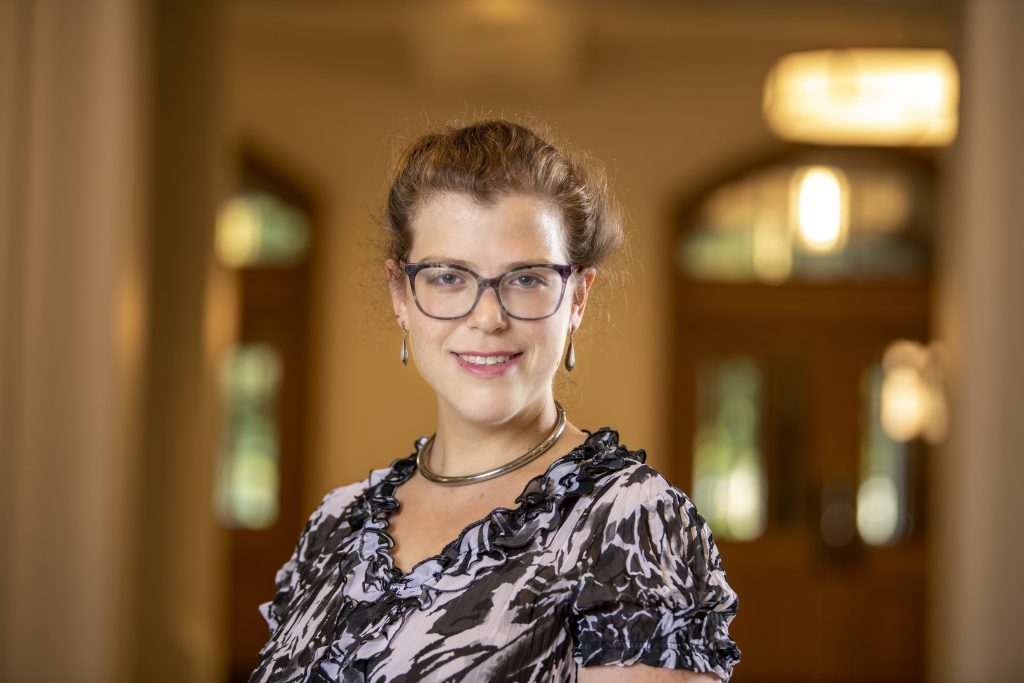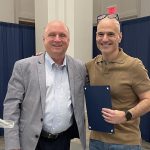As a master of global affairs student at the Keough School of Global Affairs, Abigail Ginzburg (MGA ’22) committed herself to a key principle that she now applies to her work at the National Immigrant Justice Center (NIJC) in Chicago.
“International development and peacebuilding aren’t just for ‘over there,’” Ginzburg said. “Development is needed everywhere and I want to effect change from the US.”
A former Peace Corps volunteer who served in Kosovo and Serbia and is fluent in Serbian and Russian, Ginzburg saw at NIJC a new opportunity to serve immigrants in the United States. The NIJC program she manages, a program serving people in detention who are facing deportation, has made it possible for Ginzburg to help foster integral human development in her home country.

Given the shifting political climate on US immigration, Ginzburg saw the need as well as the opportunity. Now she’s building on a career first sparked by the desire to do something tangible during the Syrian refugee crisis and informed by personal experience in her own Russian Jewish immigrant family.
“The idea is that anybody facing deportation in Chicago Immigration Court will be able to access legal representation,” she said. Typically, immigrant defense is provided on the basis of whether legal teams consider cases to be “winnable,” simply as a practical matter of time, resources, and expertise. Ginzburg’s NIJC project seeks to offer legal expertise to any immigrant who wants it, and is rooted in the belief that each person deserves representation.
In her new role, Ginzburg focuses on grant management, which ensures that those advocating on behalf of clients facing deportation are poised to succeed.
Ginzburg credits Hal Culbertson, her professor for the Ethical Issues in Humanitarian Practice course, for helping to shape her ethically grounded view of program design monitoring and evaluation.
“Ethics touch everything an organization does,” Ginzburg said. “For an organization to act with integrity, everyone at that organization must be on the same page.”
Ginzburg prefers practical work, and she chose the Keough School because of its hands-on approach. Desiring a full-year capstone project through the Integration Lab, she worked with partner organization Catholic Relief Services to develop a toolkit for mitigating poverty.

As a student, Ginzburg also assisted with citizenship classes at La Casa de Amistad, a community hub serving the Latino-Hispanic community in South Bend, before moving on to work with Afghan refugees through the Refugee RESET program at the United Religious Community of St. Joseph County.
While at Refugee RESET, she admired the grace with which immigrants and refugees answered the invasive required questions as she helped them to practice before seeing immigration agents.
“I hope to limit the amount of harm that that the process causes; to change the process,” Ginzburg said, humbled by the kind of scrutiny about everything from political affiliations to sex lives that immigrants face. “NIJC does that, with programming from direct services all the way up through policy advocacy in order to see that we’re tackling the problem from all levels and all angles.”
Ginzburg’s master of global affairs classmates contributed to her ability to view immigration challenges through just such a multidisciplinary lens. She’s not an expert on the Sahel or the Philippines, but she learned about these places from her MGA classmates, who came to Notre Dame from more than 20 countries. She also was able to learn about things like public health challenges in Belize through conversations both inside and outside of the classroom.
During the course Forced Migration and Refugees, taught by Erin Corcoran, Ginzburg says the best part was the discussion among undergraduates, lawyers and MGA students.
“We had a lot of folks who were willing to say something,” she said. “People were just very generous with their experiences.”
Now, Ginzburg is part of a new process with new people, and she asserts confidence in her work at the National Immigrant Justice Center:
“Everything that we’re striving to do, I feel like we can do it.”



